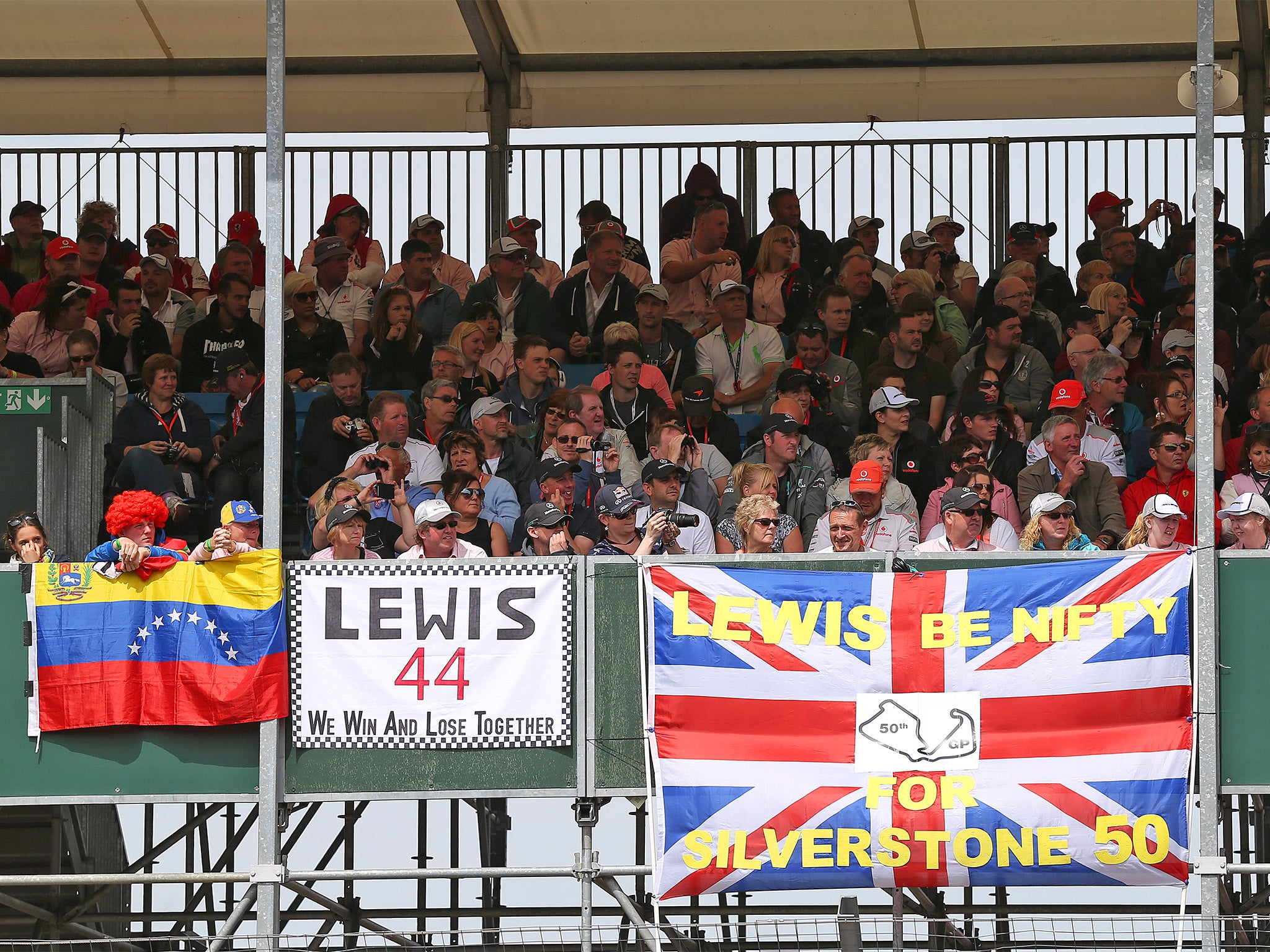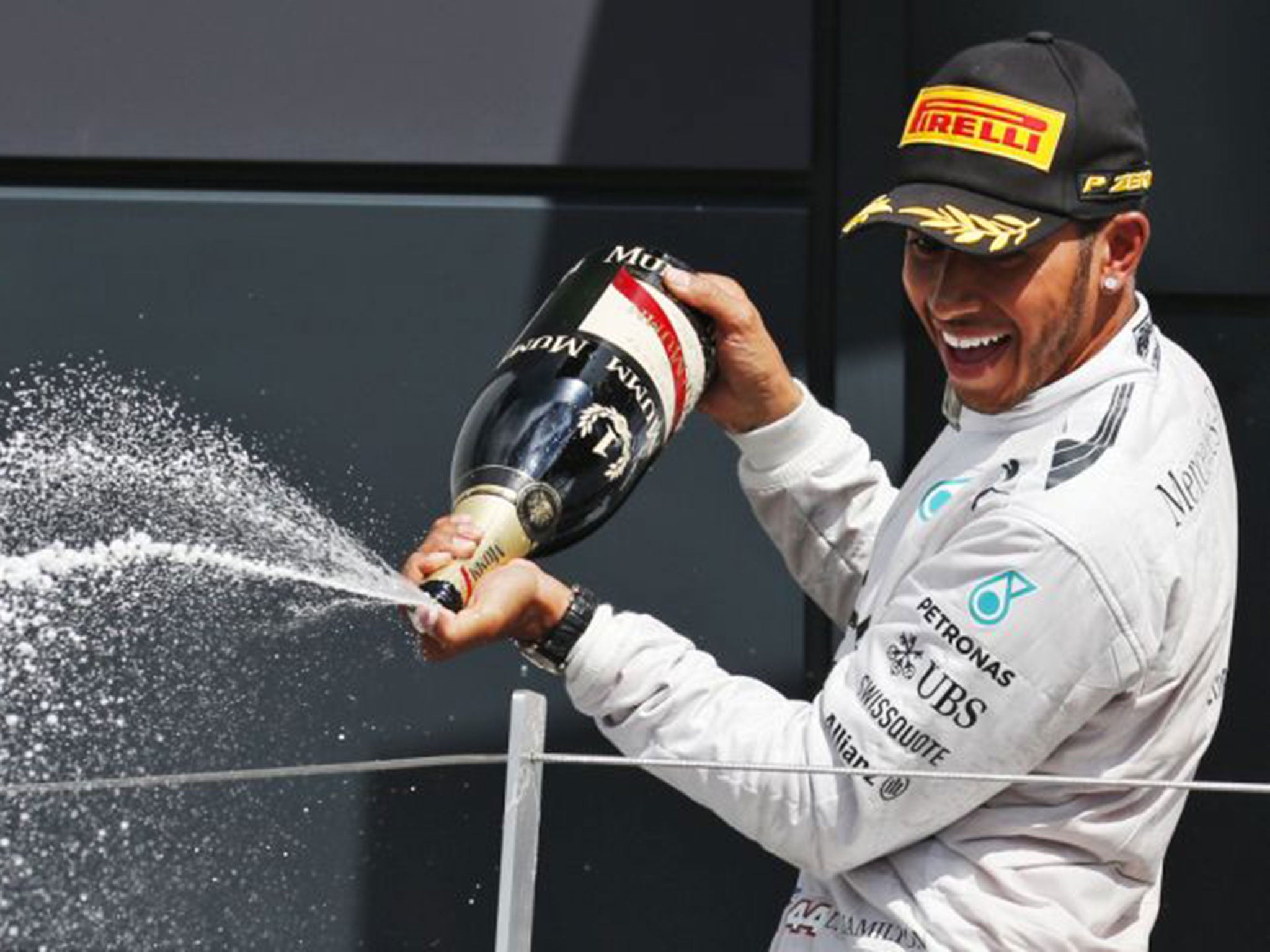Malaysian GP 2015: Silverstone chief warns European Grands Prix are in peril without government funding
Patrick Allen calls for government funding to help stop exodus of F1 races to Far East and Arabian Gulf after German demise

Your support helps us to tell the story
From reproductive rights to climate change to Big Tech, The Independent is on the ground when the story is developing. Whether it's investigating the financials of Elon Musk's pro-Trump PAC or producing our latest documentary, 'The A Word', which shines a light on the American women fighting for reproductive rights, we know how important it is to parse out the facts from the messaging.
At such a critical moment in US history, we need reporters on the ground. Your donation allows us to keep sending journalists to speak to both sides of the story.
The Independent is trusted by Americans across the entire political spectrum. And unlike many other quality news outlets, we choose not to lock Americans out of our reporting and analysis with paywalls. We believe quality journalism should be available to everyone, paid for by those who can afford it.
Your support makes all the difference.Governments must start underwriting the costs of staging grands prix to stop the drift of Formula One races from Europe to the Far East and Arabian Gulf.
So warns Patrick Allen, recently installed managing director of Silverstone, the venue of the British Grand Prix.
Circuits across Europe are under threat of losing their grands prix. The cancellation of the German Grand Prix means there are now just six in western Europe and the contracts for two circuits – Italy and Spain – are up for renewal in the next two years. The Italian GP at Monza is not expected to survive. Ten years ago, Europe staged 11 of the 19 races.
Allen, appointed to his role in January, said that unless European governments start underwriting some of the costs of staging races and circuits start upping their game in terms of what they offer spectators, the sport will continue to move east. Azerbaijan will stage its first grand prix next year and Qatar has bid to stage a race in 2016.
“It is difficult to sustain or make money from a grand prix unless you have some external support, whether that is from a government or a rich Arab sheikh,” said Allen. “We are seeing an increase in circuits that enjoy that kind of patronage.
“In the absence of that – and Silverstone is not supported in any way by patronage – we have to look at ways in which we can keep the show going. My view is that we have to make Silverstone a destination venue, properly cost the British Grand Prix and get more people attending. It may be that we will have to diversify into corporate or food events or music because the core concept of delivering a Rolling Stones concert is not that different from delivering a grand prix.

“I would welcome the government getting involved in supporting us and I think they should invest in a venue that has a sound business plan behind it. They should be supporting a venue like Silverstone that contributes £80m to the local economy in Northamptonshire.
“I am not going to sit here whining and say we can’t go on without government support because we are running Silverstone properly and making a profit. But it is one of the six biggest sporting events in the United Kingdom and it is important to keep it.
“If staging grands prix are all about the almighty dollar rather than the fans, then it will go to those countries that put up the cash to support them. We have seen the circuit expand to Russia and Bahrain, while Qatar will probably become involved. These are nations that put cash up front.”
Allen is speaking from a position of strength. Silverstone, a circuit that Formula One’s ringmaster, Bernie Ecclestone, had long wanted to remove from the World Championship, signed a 17-year-deal in 2009, negotiated via the track’s owners, the British Racing Drivers’ Club. However, that contract has an escalator clause, with the fee Silverstone pays Ecclestone’s Formula One management increasing each year.
The fees proved too much for the famed Nürburgring, which was to have staged the German GP in July. An attempt to move the race to Hockenheim fell through despite an offer of financial support from Mercedes.
“I wasn’t surprised the German Grand Prix was cancelled,” said Allen. “The Nürburgring had been in difficulties and, if the grand prix forms the lion’s share of your revenues, then you are going to be vulnerable. What I want to do at Silverstone is to introduce the audience to other events because the mistake some circuits have made has been to concentrate on the grand prix to the exclusion of everything else.”
Join our commenting forum
Join thought-provoking conversations, follow other Independent readers and see their replies
Comments